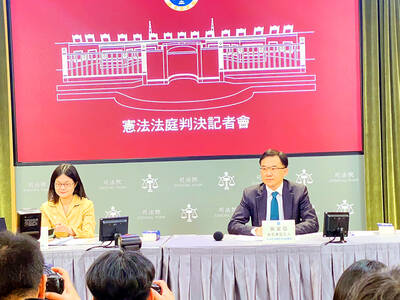The US atomic bomb attacks and the Soviet Union's entry into World War II that led to Japan's surrender were "God's gifts," the Japanese navy minister was quoted as saying at that time in documents released on Friday by the US National Security Archive.
Navy minister Mitsumasa Yonai told an adviser to the Japanese ruling elite that the two events provided a good excuse to surrender at a time when local hostility to Emperor Hirohito and his government was increasing rapidly.
The conversation was among the first complete published translations from the Japanese of accounts of key high-level meetings and discussions in Tokyo leading to the end of the war, the archive said.
ONLINE COLLECTION
The translations were released on the 60th anniversary of the bombing of Hiroshima as part of a comprehensive online collection, including declassified US government documents, on the first use of the atomic bomb and the end of the war in the Pacific.
"It may be inappropriate to put it in this way, but the atomic bombs and the Soviet entry into the war are, in a sense, God's gifts," Yonai said, nearly a week after a US B-29 dropped the world's first atomic bomb on Hiroshima on Aug. 6, 1945.
Three days later another bomb was dropped on Nagasaki. The two bombs killed some 210,000 people.
"Now we can end the war without making it clear that we have to end the war because of the domestic situation," said Yonai, who was among the six-member inner Cabinet led by then prime minister Kantaro Suzuki.
"I have long been advocating the conclusion [of the war], not because I am afraid of the enemy's attacks or because of the atomic bombs or the Soviet participation in the war," he said.
"The most important reason is my concern over the domestic situation," he said.
GROWING HOSTILITY
The bombings came as Hirohito, once considered a demigod, was losing public support for continuing the war amid growing hostility toward him and his government.
Faced with such domestic pressure, Hirohito and his advisers welcomed the dropping of the atomic bombs and the Soviet entry into the war against Japan because they provided the emperor with credit for ending the turmoil.
The effect of the atomic bombings of Hiroshima and Nagasaki on the Japanese decision to surrender compared with the impact of the Soviet entry into the war has been a subject of controversy among historians.
The curtain fell on Japan's quest for Asian hegemony less than a week after the Nagasaki nuclear bombing on Aug. 9, 1945, as Japan surrendered unconditionally by accepting the Potsdam Declaration.
Hirohito turned into a figurehead and died in 1989, leaving the ancient Chrysanthemum Throne to his son Akihito.
But Hirohito's death never resolved questions over his own responsibility for Japan's actions in the war.
also see stories:
Japan remembers Hiroshima
Editorial: Japan knows who its friends are

TRAGEDY STRIKES TAIPEI: The suspect died after falling off a building after he threw smoke grenades into Taipei Main Station and went on a killing spree in Zhongshan A 27-year-old suspect allegedly threw smoke grenades in Taipei Main Station and then proceeded to Zhongshan MRT Station in a random killing spree that resulted in the death of the suspect and two other civilians, and seven injured, including one in critical condition, as of press time last night. The suspect, identified as a man surnamed Chang Wen (張文), allegedly began the attack at Taipei Main Station, the Taipei Fire Department said, adding that it received a report at 5:24pm that smoke grenades had been thrown in the station. One man in his 50s was rushed to hospital after a cardiac arrest

PUBLIC SAFETY: The premier said that security would be tightened in transport hubs, while President Lai commended the public for their bravery The government is to deploy more police, including rapid response units, in crowded public areas to ensure a swift response to any threats, President William Lai (賴清德) said yesterday after a knife attack killed three people and injured 11 in Taipei the previous day. Lai made the remarks following a briefing by the National Police Agency on the progress of the investigation, saying that the attack underscored the importance of cooperation in public security between the central and local governments. The attack unfolded in the early evening on Friday around Taipei Main Station’s M7 exit and later near the Taipei MRT’s Zhongshan

ON ALERT: Taiwan’s partners would issue warnings if China attempted to use Interpol to target Taiwanese, and the global body has mechanisms to prevent it, an official said China has stationed two to four people specializing in Taiwan affairs at its embassies in several democratic countries to monitor and harass Taiwanese, actions that the host nations would not tolerate, National Security Bureau (NSB) Director-General Tsai Ming-yen (蔡明彥) said yesterday. Tsai made the comments at a meeting of the legislature’s Foreign Affairs and National Defense Committee, which asked him and Minister of National Defense Wellington Koo (顧立雄) to report on potential conflicts in the Taiwan Strait and military preparedness. Democratic Progressive Party (DPP) Legislator Michelle Lin (林楚茵) expressed concern that Beijing has posted personnel from China’s Taiwan Affairs Office to its

‘ILLEGAL RULING’: The KMT and the TPP slammed the Constitutional Court judgement, saying it contravened the law and was trying to clear the way for a ‘green dictatorship’ The Constitutional Court yesterday ruled that amendments to the Constitutional Court Procedure Act (憲法訴訟法) passed by the Legislative Yuan last year are unconstitutional, as they contravene due legislative process and separation of powers. The Legislative Yuan on Dec. 20 last year passed amendments stipulating that no fewer than 10 grand justices must take part in deliberations of the Constitutional Court, and at least nine grand justices must agree to declare a law unconstitutional. The Executive Yuan on Jan. 2 requested that lawmakers reconsider the bill, but the Legislative Yuan, under a combined majority of Chinese Nationalist Party (KMT) and Taiwan People’s Party